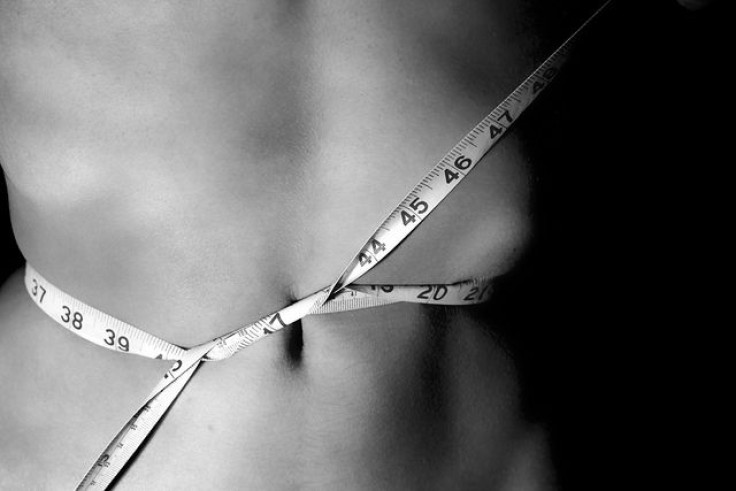Anorexia Nervosa Often Fueled By Positive Emotions, Satisfaction With Extreme Weight Loss

Women who suffer from anorexia nervosa don’t always manifest the illness with a negative outlook. In fact, according to a new study on anorexia patients, positive emotions stood out as commonplace — distorted perceptions of success each time an additional pound was dropped or a percentage point cut from overall body fat.
As an illness, anorexia nervosa ranks far and away as the most deadly for women between the ages of 15 and 24. But it’s not malnutrition that kills these women; it’s suicide. Hoping to better understand what happens inside the mind of such women, Rutgers university researchers studied a group of outpatient anorexics — women who were recovering from their disorder, but for whom the struggle of never-ending weight loss was still fresh in their minds.
Researchers refer to these women as having low positive emotion differentiation (PED). Women with low PED aren’t able to see the difference between achieving a minor goal and making a major statement about their sense of self. Dr. Edward Selby, lead author and assistant professor of clinical psychology at Rutgers, says losing one pound is more than just weight loss to a woman with PED. It’s everything.
“It’s not just ‘Oh, I met my weight loss goal,’” Selby told Medical Daily. “It’s ‘I met my weight loss goal. Maybe I’m a better person. People will think I look better now. Things will be so much better.’ And all because of this one discrete instance.”
In their study, Selby and his colleagues analyzed the emotional states of 118 women between the ages of 18 and 58 who suffered from anorexia nervosa. While many of them showed the characteristic negative signs of having an eating disorder, such as sadness and poor body image, in line with low PED theories the women also tended to overcompensate and use unhealthy benchmarks of success. Anorexia, then, wasn’t just a collapse inward. It was a fast and brutal explosion outward.
Of course, this may not be the conception many people have about anorexia. The illness is often painted with the dark strokes of self-shaming, of women standing naked in front of full-length mirrors, hating their bodies. There is some of that, Selby says. But the opposite story has largely remained unexamined, namely, the women who celebrate their illness. Seeing a protruding bone this week, where last week it was obscured by fat, becomes cause for joy. Selby suspects it’s a matter of control.
“What we think is going on is that, despite having a lot of negatives in their lives, women with anorexia find some sense of control and an ability to set weight loss goals, work hard, and see some success with those goals,” he said. All a woman has to do to see results is step on a scale after an intense workout and a 1-pound difference reaffirms her motivation. Unfortunately, the finish line never comes into view, and the women stay chasing.
The clinical significance of the team’s findings point toward setting healthier goals for women who don’t want to give up exercise but may not have the tools to help themselves. One idea Selby mentions is swapping workouts. Instead of calorie-burning exercises like running, women could try strength-building activities, like yoga.
The goal in this case is to divorce ideas of “fitness” from a number that flashes on a scale. Personal health may explain a person’s drive to work hard and see goals through until the end, but it isn’t the ultimate success. Beneath that drive could lurk the deeper motivations to feel included, important, or loved.
“Current treatments focus so much on weight restoration and coping with stress through this disorder,” Selby said, “that they’re missing a big component of helping people build a new identity that’s not overly influenced by weight loss and shape.”
Source: Selby E, Wonderlich S, Crosby R, et al. Low Positive Emotion Differentiation and Weight-Loss Activities in Anorexia Nervosa. Clinical Psychological Science. 2014.



























